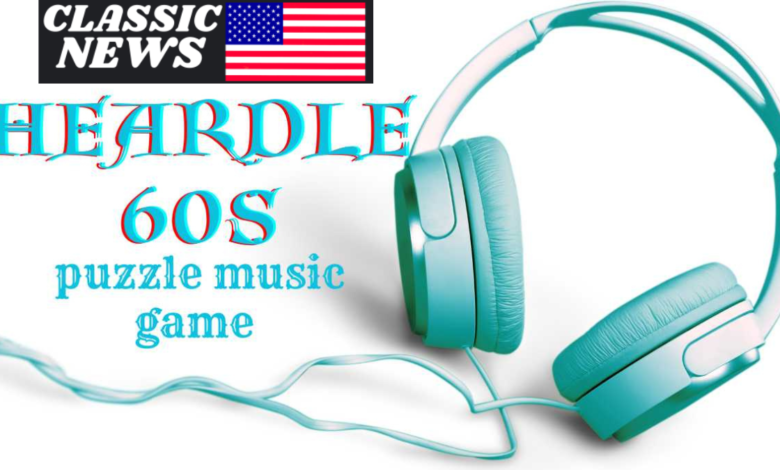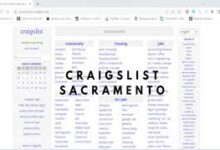Heardle 60s: Exploring the Nostalgic World of Classic Music through Modern Gaming

Introduction: The Intersection of Music and Gaming
In recent years, the intersection of music and gaming heardle 60s has produced some innovative and engaging experiences for fans of both mediums. One notable example is “Heardle,” a game that combines the challenge of music recognition with the excitement of modern gaming. While Heardle itself has become a popular phenomenon, its spin-off, “Heardle 60s,” brings a nostalgic twist by focusing specifically on the music of the 1960s.
“Heardle 60s” is more than just a game; it’s a cultural exploration that allows players to engage with the iconic sounds of a transformative decade in music history. From the Beatles and the Beach Boys to Motown and psychedelic rock, the 1960s were a period of immense musical innovation and cultural change. In this article, we will dive deep into the world of “Heardle 60s,” exploring its mechanics, the significance of its musical focus, and the broader impact it has on both gaming and music appreciation.
The Origins of Heardle: A Brief Overview

Before we delve into “Heardle 60s,” it’s essential to understand the origins of Heardle itself. The game was inspired by the popular music-based guessing game “Wordle,” which challenges players to identify a hidden word based on a series of clues. Heardle takes this concept and applies it to music, creating a unique blend of auditory and cognitive challenges.
The Concept of Heardle
Heardle’s core concept is simple yet engaging: players listen to short snippets of a song and attempt to identify the track based on these brief audio clues. Each snippet progressively reveals more of the song, making it easier to guess as more of the track is played. The challenge lies in identifying the song with the fewest clues possible, adding an element of strategy and skill.
The Popularity of Heardle
Heardle quickly gained popularity for its innovative approach to music trivia. By combining the thrill of guessing games with the enjoyment of music, it captured the interest of players worldwide. The game’s success led to the creation of various themed versions, each focusing on different genres, decades, or aspects of music.
The Emergence of Heardle 60s
Building on the success of the original Heardle, “Heardle 60s” was introduced as a special edition dedicated to the music of the 1960s. This version aimed to cater to fans of classic rock, pop, and other genres that defined the decade. By focusing on this specific era, Heardle 60s offers a nostalgic experience that celebrates the rich musical landscape of the 1960s.
The Musical Landscape of the 1960s
To fully appreciate “Heardle 60s,” it’s essential to understand the musical context of the 1960s. This decade was a period of profound change and innovation in music, influencing the development of various genres and artists.
The Beatles and the British Invasion
One of the most significant musical phenomena of the 1960s was the British Invasion, spearheaded by The Beatles. Formed in Liverpool in 1960, The Beatles revolutionized popular music with their innovative songwriting, vocal harmonies, and charismatic performances. Their influence extended beyond music, impacting fashion, culture, and social attitudes.
The Beatles’ success was followed by other British bands like The Rolling Stones, The Who, and The Kinks, who contributed to the vibrant and diverse musical landscape of the era. Their songs continue to be celebrated and remembered through games like Heardle 60s, which brings their music to new audiences.
Motown and Soul Music
The 1960s also saw the rise of Motown, a record label that played a crucial role in shaping the sound of soul music. Founded by Berry Gordy Jr., Motown was home to influential artists like Stevie Wonder, Marvin Gaye, and The Supremes. Motown’s distinctive sound, characterized by its blend of soul, pop, and R&B, left an indelible mark on the music industry.
Soul music, with its emotional depth and powerful vocals, became a defining feature of the decade. Artists like Aretha Franklin and Otis Redding brought a new level of intensity and expression to their performances, making their music timeless and influential.
Psychedelic Rock and Counterculture
The late 1960s witnessed the emergence of psychedelic rock, a genre that reflected the counterculture movement of the time. Bands like The Doors, Jefferson Airplane, and Pink Floyd experimented with new sounds and studio techniques, creating music that was both innovative and exploratory.
Psychedelic rock was closely associated with the youth culture of the 1960s, including the Summer of Love and the rise of the hippie movement. The genre’s experimental nature and thematic exploration of consciousness and spirituality made it a defining element of the decade.
How Heardle 60s Works: Mechanics and Gameplay
“Heardle 60s” adapts the core mechanics of the original Heardle to focus specifically on the music of the 1960s. Understanding how the game works can enhance your enjoyment and appreciation of this nostalgic experience.
Gameplay Mechanics
The gameplay of Heardle 60s follows a similar format to the original Heardle. Players are presented with a series of short audio clips from songs popular in the 1960s. Each clip gradually reveals more of the song, making it easier to identify as the game progresses.
Players must guess the song title based on these snippets, with fewer points awarded for guessing correctly with fewer clues. The game typically includes a variety of tracks from different genres and artists, ensuring a diverse and engaging experience for players.
Difficulty Levels and Scoring
Heardle 60s offers various difficulty levels to cater to players of different skill levels. Beginners might start with easier tracks from well-known artists, while more experienced players can challenge themselves with less familiar songs or deeper cuts from iconic albums.
Scoring is based on how quickly players can identify the song and the number of clues used. High scores are achieved by recognizing the track with the fewest audio snippets, showcasing a player’s knowledge and familiarity with 1960s music.
Daily Challenges and Leaderboards
To keep the experience fresh and engaging, Heardle 60s often features daily challenges and leaderboards. Daily challenges present players with a new set of songs each day, encouraging regular participation and competition.
Leaderboards allow players to compare their scores with others, fostering a sense of community and friendly competition. This feature adds an element of excitement and motivation for players to improve their skills and knowledge of 1960s music.
The Impact of Heardle 60s on Music Appreciation
“Heardle 60s” serves not only as a fun game but also as a tool for music appreciation. By engaging with the music of the 1960s, players can deepen their understanding of the era and its influential artists.
Educational Value
Heardle 60s offers educational value by introducing players to a wide range of music from the 1960s. Through the game, players can explore different genres, artists, and songs they might not have encountered otherwise.
The game’s focus on iconic tracks and influential artists provides context and background information about the music of the decade. This educational aspect helps players develop a greater appreciation for the era’s musical contributions and their impact on subsequent genres.
Reviving Classic Hits
One of the game’s significant contributions is its role in reviving classic hits from the 1960s. Many of these songs may not be as prominent in contemporary music charts, but Heardle 60s brings them back into the spotlight.
By revisiting these classic tracks, the game helps preserve the legacy of 1960s music and introduces it to a new generation of listeners. This revival of classic hits fosters a sense of nostalgia and encourages players to explore more music from the era.
Fostering a Connection to the Past
Heardle 60s creates a bridge between the past and the present, allowing players to connect with the music of the 1960s in a modern context. The game’s nostalgic appeal resonates with fans of classic music and provides a unique way to experience the sounds of a bygone era.
For those who lived through the 1960s, the game offers a chance to relive cherished memories and reconnect with the music that defined their youth. For younger players, it provides an opportunity to discover and appreciate the music that shaped the cultural landscape of the decade.
Strategies for Excelling in Heardle 60s
To make the most of your experience with Heardle 60s, consider employing strategies that can enhance your gameplay and improve your scores. Here are some tips to help you excel:
Familiarize Yourself with 1960s Music
A strong knowledge of 1960s music is crucial for excelling in Heardle 60s. Familiarize yourself with the major artists, albums, and hits from the decade. Listening to playlists or exploring classic music compilations can help you recognize key tracks and improve your chances of guessing correctly.
Practice Regularly
Like any game, practice is essential for improving your skills. Regularly playing Heardle 60s will help you become more adept at identifying songs based on brief audio snippets. As you play more frequently, you’ll develop a better ear for distinguishing different tracks and artists.
Pay Attention to Audio Clues
Heardle 60s provides audio clues that progressively reveal more of the song. Pay close attention to these clues, as they can offer valuable information about the track. Listen for distinctive elements such as vocal style, instrumentation, and melody that can help you identify the song more accurately.
Utilize Online Resources
If you’re struggling with certain tracks, consider using online resources to enhance your knowledge. Websites, forums, and social media platforms dedicated to 1960s music can provide valuable insights and help you learn more about specific songs and artists.
The Social and Cultural Significance of Heardle 60s
“Heardle 60s” is more than just a game; it reflects the enduring appeal of 1960s music and its cultural significance. By exploring the social and cultural aspects of the decade, we can gain a deeper understanding of why this era continues to captivate audiences.
The Legacy of 1960s Music
The music of the 1960s has left a lasting legacy that continues to influence contemporary artists and genres. The innovations and experimentation of the decade paved the way for new musical styles and cultural movements. Heardle 60s contributes to the preservation and celebration of this legacy, ensuring that the music of the era remains relevant and appreciated.
Cultural Nostalgia and Its Impact
Nostalgia plays a significant role in the appeal of Heardle 60s. The game taps into the collective memory of a time when music was a powerful force for social change and cultural expression. This nostalgia fosters a connection between players and the music of the 1960s, creating a sense of shared experience and appreciation.
The Role of Gaming in Music Education
Gaming has become an increasingly important tool for education and engagement. Heardle 60s demonstrates how games can be used to teach and explore musical history interactively and enjoyably. By combining gaming with music education, the game offers a unique approach to learning about the 1960s and its musical contributions.
The Future of Heardle and Its Variants
As the gaming and music landscapes continue to evolve, the future of Heardle and its variants looks promising. The success of Heardle 60s may lead to the development of additional themed editions and new ways to engage with music through gaming.
Potential New Editions
Following the success of Heardle 60s, there is potential for the introduction of new editions focusing on different decades, genres, or musical styles. These variants could offer players the opportunity to explore a wide range of music and expand their knowledge across various periods and genres.
Innovations in Music-Based Gaming
The concept of combining music with gaming is likely to inspire further innovations in the industry. Future developments may include more advanced gameplay mechanics, interactive features, and immersive experiences that enhance the connection between music and gaming.
Expanding the Reach of Music Appreciation
As Heardle and its variants continue to grow in popularity, they have the potential to reach new audiences and promote a broader appreciation of music. By engaging players through interactive and educational experiences, these games can contribute to the ongoing celebration of musical history and cultural heritage.
Conclusion: Celebrating the 1960s Through Heardle 60s
“Heardle 60s” offers a unique and engaging way to explore the music of the 1960s, combining the excitement of gaming with the nostalgia of classic hits. By delving into the era’s iconic tracks and influential artists, the game provides players with a deeper appreciation for the decade’s musical contributions.
Through its gameplay mechanics, educational value, and cultural significance, Heardle 60s serves as a testament to the enduring impact of 1960s music. Whether you’re a fan of classic rock, soul, or psychedelic sounds, the game offers a chance to connect with the rich musical heritage of the era and celebrate its lasting legacy.
As we continue to explore the intersection of music and gaming, Heardle 60s stands out as a compelling example of how interactive experiences can bring the past to life and foster a greater appreciation for the sounds that shaped our cultural history.




